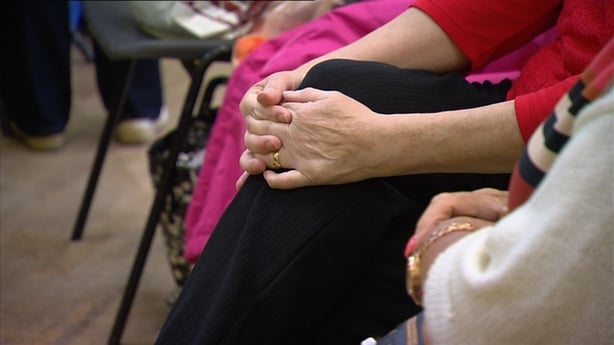Inspections by the Health Inspection and Quality Authority (HIQA) during the summer highlighted a need for improved measures in three disability services run by Sunbeam House Services CLG to protect residents.
Thirty inspection reports on designated centres for people with disabilities have been published by the watchdog.
Inspectors identified non-compliance with regulations and standards in relation to 17 inspections.
At one centre, the inspector found that management systems did not adequately ensure the service provided was safe, appropriate to the residents' needs and effectively monitored, at all times.
Non-compliance had increased compared to the previous inspection in January 2021.
There were compatibility issues in the centre that resulted in behavioural incidents which impacted negatively on the lives of the residents and had resulted in them feeling unsafe in their home and when out in the community according to the report.
There were safeguarding plans in place to try reduce the occurrence of incidents, however, the provider had not ensured they were always available to staff or that they had been reviewed.
Not all residents felt they were living in a suitable environment that met their needs, particularly their independent needs.
At a second centre run by Sunbeam House Services, there had been an increase in safeguarding notifications submitted to HIQA since the provider permitted an emergency admission of a resident into the centre in October 2021.
The centre did not meet the assessed needs of the resident which resulted in an increase in behavioural and safeguarding incidents, which impacted negatively on the residents living in the centre.
Residents logged their unhappiness through the centre's complaints procedure and staff relayed their concerns that the behavioural incidents were having on residents' lives.
HIQA found the provider had not adequately assessed the potential risk that an emergency admission would place on the centre's overarching safeguarding plan or on the impact it may have on residents' lived experience in the house.

It also found that the provider had failed to ensure that a July 2021 safeguarding plan had been effectively implemented and adequately reviewed.
At another Sunbeam run centre which was inspected in May, HIQA found that behavioural incidents identified in a previous inspection the year before were continuing.
The report says the incidents impacted negatively on the lives of residents living in two premises and in some cases, residents had logged complaints as they were unable to sleep at night.
The report says the person in charge and staff were endeavouring to implement, where appropriate, residents’ behavioural support plans and safeguarding plans, in an effort to lessen the impact on residents and overall, support the reduction in behavioural incidents occurring.
However, the report notes that during times where the full complement of staff was not in place (either due to no available cover for vacancies or staff supporting persons in receipt of the organisation’s independent living service), the strategies and measures within the plans were not always effective.
Overall, it found improvements were needed to ensure that residents received continuity of care at all times, and this was of particular significance for a number of residents, whose safeguarding plans, noted that familiar staff reduced the likeliness of behavioural incidents occurring.
On the day of the inspection, the inspector found that a number of staff refresher training courses were overdue.
At a service run by St John of God Community Services, HIQA says it was evident from the inspection that a high level of restrictions was being imposed on residents in order to keep them separated as a way of reducing the risk of peer-to-peer incidents.
It found residents' rights to have self-determination, agency and choice in their daily lives were severely impacted as a result.
In an effort to limit the interactions between residents, residents could not get up and go into the kitchen in the morning when they wanted to.
They also did not have a choice around what time they went to bed.
While the report says there were notable rights restrictions in place in the centre, staff did demonstrate a good understanding of how practices in the centre were not upholding residents' rights and "expressed frustration" that the transition plan for one resident had not been made available at that stage.
Notification of a serious incident that required medical care at a centre run by Stewarts Care Adult Services was submitted to HIQA's Chief Inspector in March 2022 and this resulted in an inspection in July.
On the day of inspection, no records could be found on the incident management system for the incident, nor daily handover notes for the day in question.
The day following the inspection, the provider confirmed that there was no incident record or written notes detailing the incident, therefore, it had not been reviewed and reported in line with their usual systems.
Following the inspection, the provider submitted an urgent action plan response outlining how they would review the incident in the designated centre and complete a critical incident review retrospectively.
Examples of good practice observed by inspectors included at a centre in Louth operated by St John of God Community Services CLG where the centre’s layout had been redesigned to provide residents with more space and to enjoy activities such as playing pool, do exercise classes, watch television or listen to music.
An extra vehicle was provided to allow residents to have greater choice and enjoy more opportunities in the community.
At a centre in Cavan operated by Talbot Care Unlimited Company, regular meetings gave residents greater opportunities to make choices such as on weekly meal and activity planning.
Meetings also kept them updated on changes at the centre, educational opportunities and how to keep themselves safe and make a complaint if they were unhappy.
At a centre in Dublin operated by Walkinstown Association For People With An Intellectual Disability CLG, residents were supported to make informed choices about their care and support, with residents encouraged to take positive risks to support their independence.







